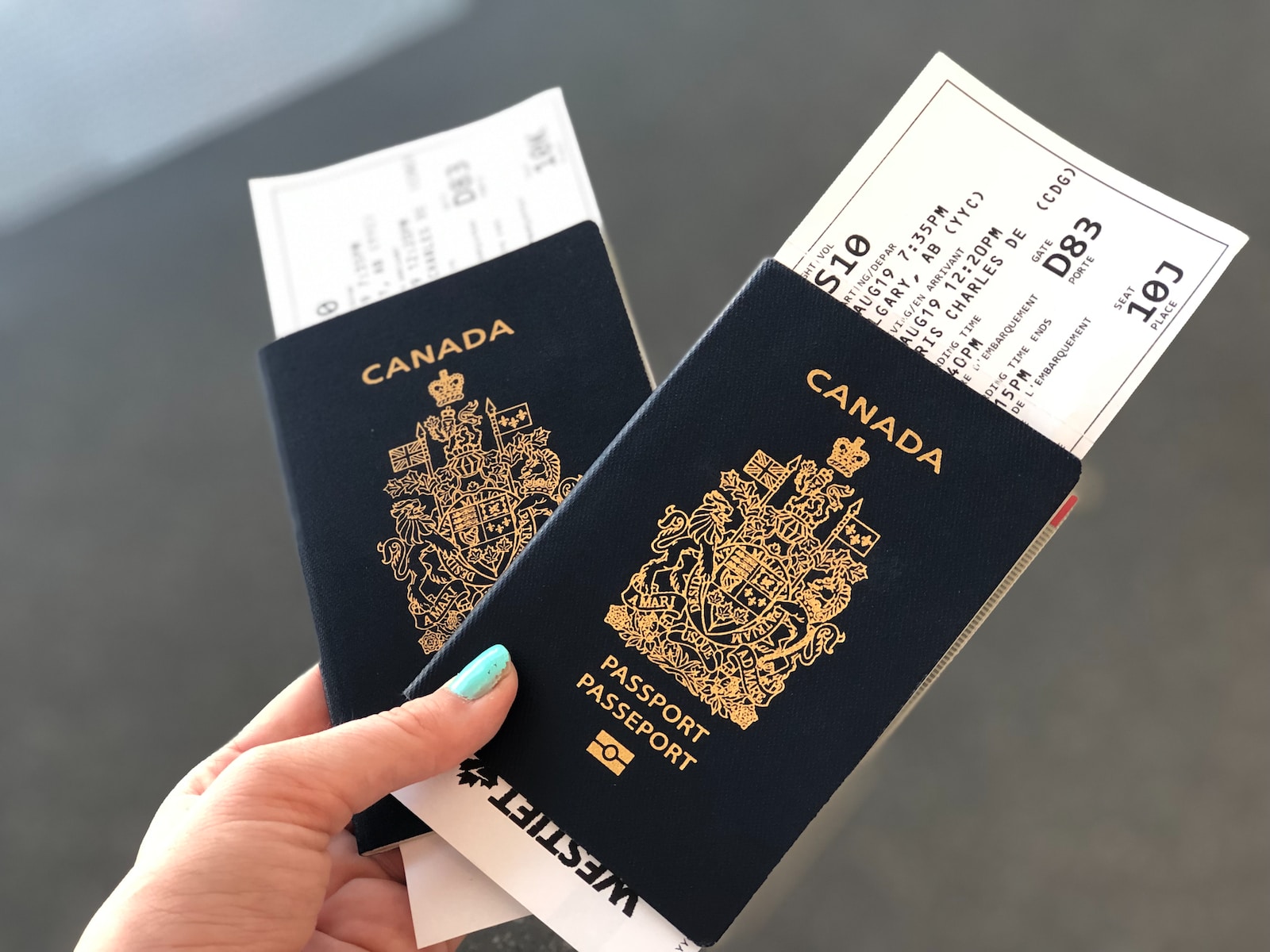Best Routes to Travel Abroad in 2023 as a Student
As a student traveling abroad, the best route depends on several factors such as your budget, the purpose of your travel, and the country you want to visit. Here are a few options to consider:
- Study Abroad Programs: Many universities offer study abroad programs for students to spend a semester or year studying in a foreign country. This is a great option for students who want to combine travel with education.
- Internship Abroad: Consider interning abroad as a way to gain valuable work experience while exploring a new culture. Many companies offer international internships to students in various fields.
- Volunteer Abroad: Volunteer abroad programs provide an opportunity to give back while learning about new cultures and gaining valuable skills.
- Working Holiday Visa: Some countries offer working holiday visas to young people who want to work and travel. This is a great option for students who want to finance their travels.
- Backpacking: For students on a tight budget, backpacking can be a fun and budget-friendly way to travel.
Whichever option you choose, make sure to research the destination country, get proper travel insurance, and obtain the necessary visas and documentation before you go.
Study Abroad Programs
Study abroad programs offer students the opportunity to pursue their academic interests while immersing themselves in a new culture and gaining a global perspective. There are many different types of study abroad programs, ranging from short-term language immersion programs to full degree programs at foreign universities.
Here are some common types of study abroad programs:
- Exchange programs: These programs allow students to spend a semester or academic year at a partner university abroad. Students typically pay tuition to their home institution and are responsible for their own living expenses.
- Direct enrollment programs: These programs allow students to directly enroll in a foreign university and take classes alongside local students. Students are responsible for their own tuition and living expenses.
- Faculty-led programs: These programs are typically short-term and led by faculty members from the home institution. They may focus on a specific academic topic or cultural experience.
- Internship programs: These programs combine academic coursework with an internship or work experience in a foreign country.
- Language immersion programs: These programs are designed to improve language proficiency through intensive language instruction and immersion in a foreign culture.
Advantages of Study Abroad Programs
- Study abroad programs can be a transformative experience for students, providing the opportunity to develop intercultural competence, language proficiency, and a global network of contacts. They also can enhance a student’s resume and provide a competitive advantage in the job market.
- Advantages of study abroad programs include:
- Immersion in a foreign culture: Studying abroad provides an opportunity to experience a new culture firsthand and learn the language and customs of the host country.
- Personal growth: Living and studying abroad can be a life-changing experience that helps students develop independence, self-confidence, and intercultural communication skills.
- Enhanced education: Study abroad programs often offer courses that are not available at home universities and provide students with a unique perspective on their field of study.
- Career opportunities: Study abroad can enhance students’ resumes and make them more competitive in the job market, particularly in fields related to international business or education.
- Networking: Study abroad programs provide opportunities to make international connections and form lifelong friendships.
Before applying for a study abroad program, students should research the destination country, consider their budget, and ensure that the program is a good fit with their academic and career goals.
Internship Abroad
An internship abroad is a work experience program that allows students or recent graduates to gain practical work experience in a foreign country while also immersing themselves in a new culture. Interns typically work for a company or organization for a set period of time, usually ranging from a few weeks to several months.
Internships abroad can be a valuable experience for students and recent graduates looking to gain international work experience and improve their language skills. They can provide an opportunity to learn new skills, build a professional network, and gain a global perspective that can be beneficial in future career opportunities.
There are a variety of types of internships abroad, including those focused on specific industries, such as business, engineering, or marketing, as well as those focused on language immersion, community service, or research. Some internships are unpaid, while others offer a stipend or other compensation.
Internship abroad programs may be arranged through a university, a third-party provider, or directly with a company or organization. It’s important to do research and ensure that the program is reputable and provides adequate support for participants, including accommodations, transportation, and assistance with visas and work permits.
There are many advantages to pursuing an internship abroad, including:
- International work experience: An internship abroad provides students or recent graduates with an opportunity to gain practical work experience in a foreign country, which can be valuable in developing skills and enhancing their resumes. It also provides an opportunity to work in a different cultural context, which can help develop adaptability, flexibility, and intercultural competence.
- Language skills: An internship abroad can be an effective way to improve language skills by immersing oneself in a new language and culture. Interns can practice speaking the language on a daily basis, which can improve fluency and confidence.
- Professional network: Interning abroad can help students or recent graduates build a global professional network of contacts in their field of interest, which can be useful in finding future job opportunities.
- Personal growth: Interning abroad can be a transformative experience that helps students or recent graduates develop independence, confidence, and self-awareness. It can also be a chance to experience new cultures and meet new people, which can broaden their perspective on the world.
- Career advancement: International work experience is highly valued by employers, and an internship abroad can be a valuable asset when seeking employment in a global economy. It can demonstrate an ability to work in diverse teams and adapt to new situations, which are highly valued in many industries.
Overall, an internship abroad can be a life-changing experience that offers personal and professional growth, language acquisition, and the opportunity to gain practical work experience in a foreign country.
Volunteer Abroad
Volunteering abroad is a type of travel that involves working on a volunteer project in a foreign country. It is a way to give back to the community, gain new skills, and learn about different cultures. Volunteer abroad programs are available in a wide range of fields, including education, healthcare, environmental conservation, community development, and more.
Volunteer abroad programs vary in length, from a few weeks to several months or even a year. Volunteers may work with local organizations, NGOs, or grassroots initiatives, depending on their interests and skills. Volunteers may also be involved in a range of activities, including teaching, construction, healthcare, community outreach, and environmental conservation.
Volunteering abroad can be a life-changing experience, providing the opportunity to make a positive impact in a community and learn about new cultures. It can also be a way to gain new skills, enhance one’s resume, and build a global network of contacts. Some programs may also offer language classes, cultural activities, and homestay options, which can enhance the cultural immersion experience.
It’s important to research volunteer abroad programs thoroughly before committing to a project. It’s recommended to choose a reputable organization that provides adequate support for volunteers, including accommodation, meals, and training. It’s also important to consider the cultural and ethical implications of the volunteer work, and ensure that the work is sustainable and in line with the needs of the local community.
Volunteering abroad can offer many advantages, both for the volunteer and the community being served. Here are some of the advantages of volunteering abroad:
- Making a positive impact: Volunteering abroad provides the opportunity to make a positive impact on the lives of others, by contributing to community development, environmental conservation, healthcare, or education initiatives. Volunteers can use their skills and knowledge to help address important social issues and make a meaningful difference in the lives of others.
- Cultural immersion: Volunteering abroad can be a great way to immerse oneself in a new culture and learn about different ways of life. Volunteers can interact with local people and gain a deeper understanding of the customs, traditions, and beliefs of the community they are serving.
- Language learning: Volunteering abroad can be an effective way to improve language skills by immersing oneself in a new language and culture. Volunteers can practice speaking the language on a daily basis, which can improve fluency and confidence.
- Skill development: Volunteering abroad can offer the opportunity to gain new skills, such as leadership, teamwork, communication, and problem-solving. These skills can be valuable in personal and professional life, and can enhance a volunteer’s resume.
- Personal growth: Volunteering abroad can be a transformative experience that helps individuals develop independence, self-awareness, and a sense of purpose. It can also be a chance to step out of one’s comfort zone and experience new challenges, which can lead to personal growth and self-discovery.
- Building a global network: Volunteering abroad can help individuals build a global network of contacts in their field of interest, which can be useful in finding future job opportunities or partnerships.
Overall, volunteering abroad can be a life-changing experience that offers personal and professional growth, language acquisition, and the opportunity to make a positive impact in a community. It’s important to research volunteer abroad programs thoroughly and ensure that the volunteer work is sustainable and in line with the needs of the local community.
Working Holiday Visa
A Working Holiday Visa (WHV) is a type of visa that allows individuals to work and travel in a foreign country for a certain period of time. It is typically available to young adults, usually between the ages of 18 and 30, who are citizens of countries that have a bilateral agreement with the country in question.
The working holiday visa program is designed to encourage cultural exchange and international travel, while also providing young people with an opportunity to work and support themselves while traveling. The program typically allows participants to work in a variety of industries, such as hospitality, tourism, and agriculture, and to engage in other cultural and educational activities.
The length of the working holiday visa can vary depending on the country and the bilateral agreement. Generally, the visa is valid for up to 12 months, although some countries may allow participants to extend their stay for an additional 6 to 12 months.
The requirements and restrictions for a working holiday visa can also vary depending on the country. In general, applicants must meet certain age and citizenship requirements, and may be required to have a certain level of English proficiency, proof of sufficient funds, and a valid passport.
The working holiday visa can be a great way to travel and experience a new culture while earning money to support oneself. It can also be an opportunity to gain international work experience, which can be valuable for future career opportunities. However, it’s important to research the requirements and restrictions for the specific country before applying for a working holiday visa, and to ensure that one is prepared for the challenges of working and living abroad.
A Working Holiday Visa (WHV) can offer many advantages for young adults who are interested in traveling and working abroad. Here are some of the advantages of a working holiday visa:
- Cultural immersion: A working holiday visa can provide a unique opportunity to immerse oneself in a new culture, learn about the local customs, traditions, and language, and develop a deeper understanding of the host country.
- International work experience: A working holiday visa can be an excellent way to gain international work experience, which can be valuable for future career opportunities. It can also help to develop new skills and abilities, which can enhance a resume and make a person more attractive to potential employers.
- Networking: A working holiday visa can help to build a global network of contacts, including fellow travelers, local residents, and business associates. This can be useful for future job opportunities or business partnerships.
- Personal growth: A working holiday visa can be a transformative experience that helps individuals develop independence, self-confidence, and a sense of adventure. It can also be a chance to step out of one’s comfort zone and experience new challenges, which can lead to personal growth and self-discovery.
- Travel: A working holiday visa can provide the opportunity to travel and explore new destinations. It can be an excellent way to see the world, experience new cultures, and create lasting memories.
- Financial independence: A working holiday visa can help young adults to become financially independent, supporting themselves through work while traveling and exploring new countries.
Overall, a working holiday visa can be a life-changing experience that offers personal and professional growth, international work experience, cultural immersion, and the opportunity to travel and explore new destinations. However, it’s important to research the requirements and restrictions for the specific country before applying for a working holiday visa, and to ensure that one is prepared for the challenges of working and living abroad.
Backpacking
Backpacking is a type of independent travel where a person travels with only essential items in a backpack, usually for an extended period of time. Backpackers often stay in budget accommodations such as hostels or campgrounds, and travel by public transportation, hitchhiking, or on foot.
Backpacking can be a way to explore new destinations and experience different cultures on a limited budget. It allows travelers to get off the beaten path and see places that are not typically visited by tourists. Backpacking can also offer opportunities for personal growth and self-discovery, as it often involves stepping out of one’s comfort zone and taking on new challenges.
Backpacking can take many forms, from short trips to long-term travel that spans multiple countries or continents. Some backpackers prefer to travel alone, while others travel in groups or with a partner. Backpacking can be a popular way to explore natural landscapes such as mountains, forests, or beaches, as well as cities and urban areas.
Backpacking can be a great way to see the world, meet new people, and experience different cultures. It can also be a cost-effective way to travel, as backpackers often prioritize low-cost accommodations and transportation. However, it’s important to be prepared for the challenges of backpacking, such as navigating unfamiliar places, managing limited resources, and dealing with unexpected situations.
There are many advantages to backpacking, including:
- Flexibility: Backpacking offers a high degree of flexibility, as travelers can easily change their itinerary, move to a different location, or extend their trip if they choose. This flexibility allows backpackers to adjust their plans to suit their preferences and needs.
- Affordability: Backpacking is often a cost-effective way to travel, as backpackers typically stay in budget accommodations, eat at inexpensive restaurants, and travel using public transportation or other low-cost options. This can make it possible for travelers to see more places and extend their trip without breaking the bank.
- Cultural immersion: Backpacking offers the opportunity to immerse oneself in a new culture and experience life as a local. By staying in budget accommodations and traveling using local transportation, backpackers can interact with locals, experience local cuisine, and learn about the customs and traditions of the destination.
- Personal growth: Backpacking can be a transformative experience that offers personal growth and self-discovery. It often involves stepping out of one’s comfort zone, taking on new challenges, and gaining new perspectives. This can help travelers develop independence, self-confidence, and a sense of adventure.
- Adventure: Backpacking can be a great adventure that offers the opportunity to explore new destinations, meet new people, and experience new things. Whether backpacking through mountains, forests, or urban areas, there are always new experiences and challenges to be had.
- Environmental awareness: Backpacking often involves spending time in natural environments, which can help promote an appreciation for the environment and a desire to preserve it. Backpackers often develop an awareness of their impact on the environment and take steps to minimize their footprint.
Overall, backpacking can be a rewarding and memorable experience that offers many advantages, including flexibility, affordability, cultural immersion, personal growth, adventure, and environmental awareness. However, it’s important to be prepared for the challenges of backpacking, such as navigating unfamiliar places, managing limited resources, and dealing with unexpected situations.











